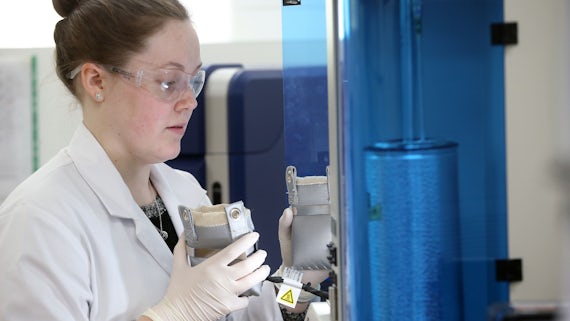RSC industry award for Alpha Process
21 Mehefin 2016

The industrial applications of the Alpha Process, developed in collaboration with researchers from the School of Chemistry at Cardiff University, have been recognised at the Royal Society of Chemistry’s 2016 Industry and Technology Awards.
The Society awarded David Johnson of Lucite International the Applied Catalysis Award for contributions to the invention of the Alpha technology.
Lucite International is the world’s leading producer of methyl methacrylate (MMA), a key commodity precursor to the plastic commonly known as Perspex. Working with Lucite (then ICI Acrylics) to facilitate the production of Perspex, Professor Peter Edwards and Dr Paul Newman from the School of Chemistry, developed and patented a commercially viable synthetic route to a critical catalyst component.
The new technology supported by this catalyst has several major advantages to conventional methods of producing MMA. It utilises the efficient conversion of cheap readily available feedstocks (ethylene and methanol) while avoiding the requirement for the highly toxic hydrogen cyanide used in conventional competitor processes. It is also more environmentally friendly with essentially zero waste products, and cheaper, creating savings of up to 40% on operating costs, over the main competitor technologies. The acrylic resin product achieved is of a higher quality and can subsequently be used for higher value end applications.
Since the development of this technology, Lucite International have invested in major Alpha Process production facilities in Singapore and Saudi Arabia (due for completion 2017), benefitting from a production route which is more efficient, more reliable and cheaper than conventional routes.
To find out more about the development of the Alpha Process, take a look at our research impact webpage.